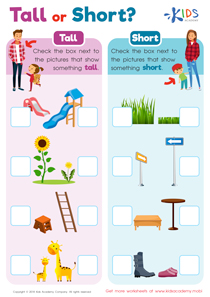Spatial awareness Preschool Math Worksheets
10 filtered results
-
From - To
Enhance your child’s spatial awareness with our engaging preschool math worksheets! Designed for young learners, these printable resources help children visualize and understand their surroundings, promoting essential math skills. Activities include identifying shapes, recognizing positions, and exploring patterns, making learning fun and interactive. Our worksheets cater to different learning styles, ensuring every child can develop their spatial reasoning abilities. Perfect for home or classroom use, these materials support early childhood education by building a strong foundation in math concepts. Get your preschooler started on the path to success with our spatial awareness worksheets today! Discover the joy of learning through play!
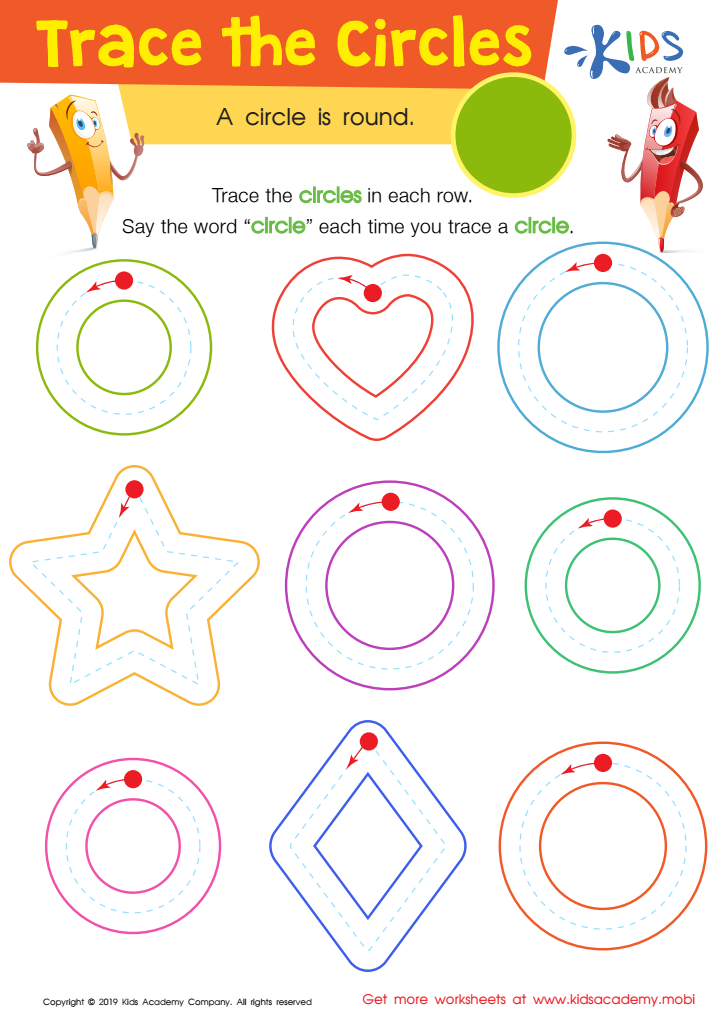

Trace The Circles Worksheet
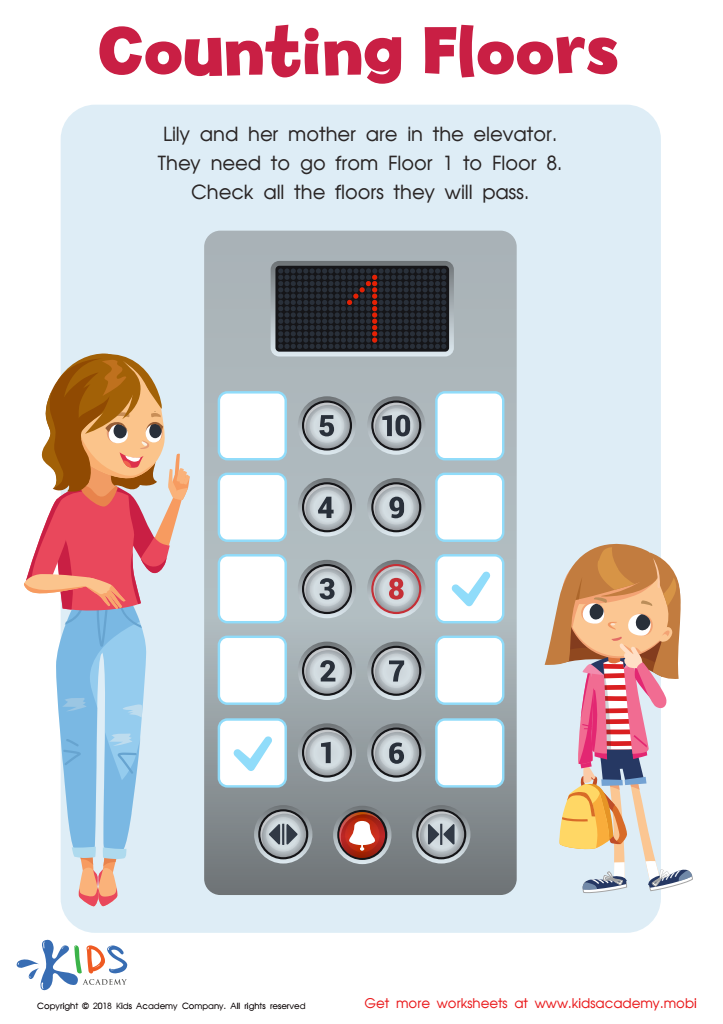

Counting Floors Worksheet
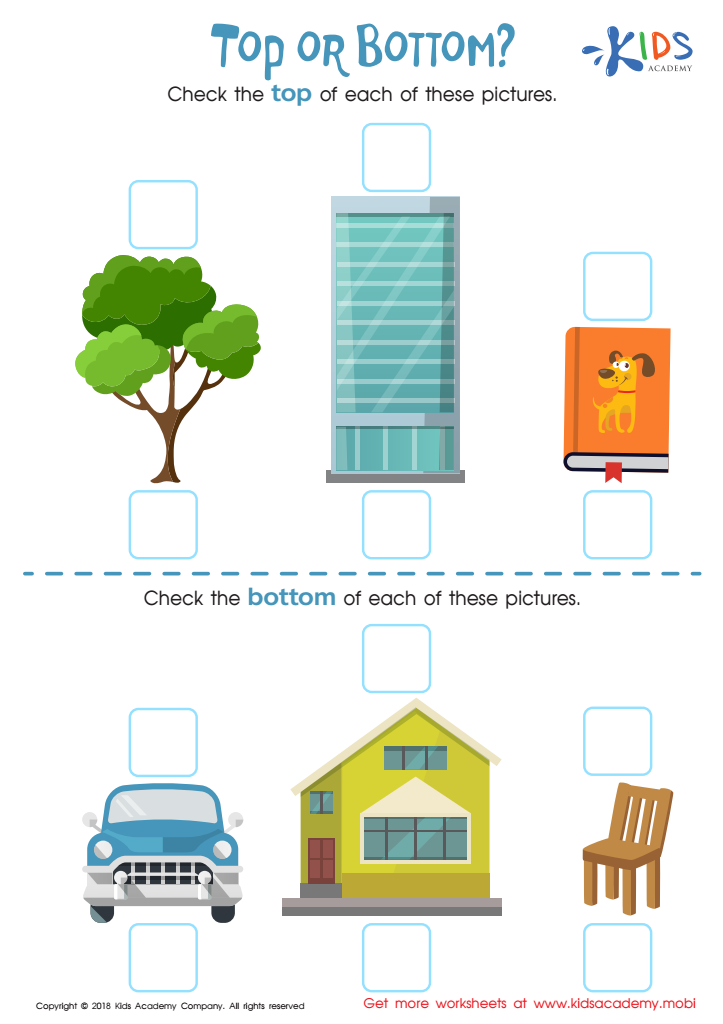

Top or Bottom Worksheet
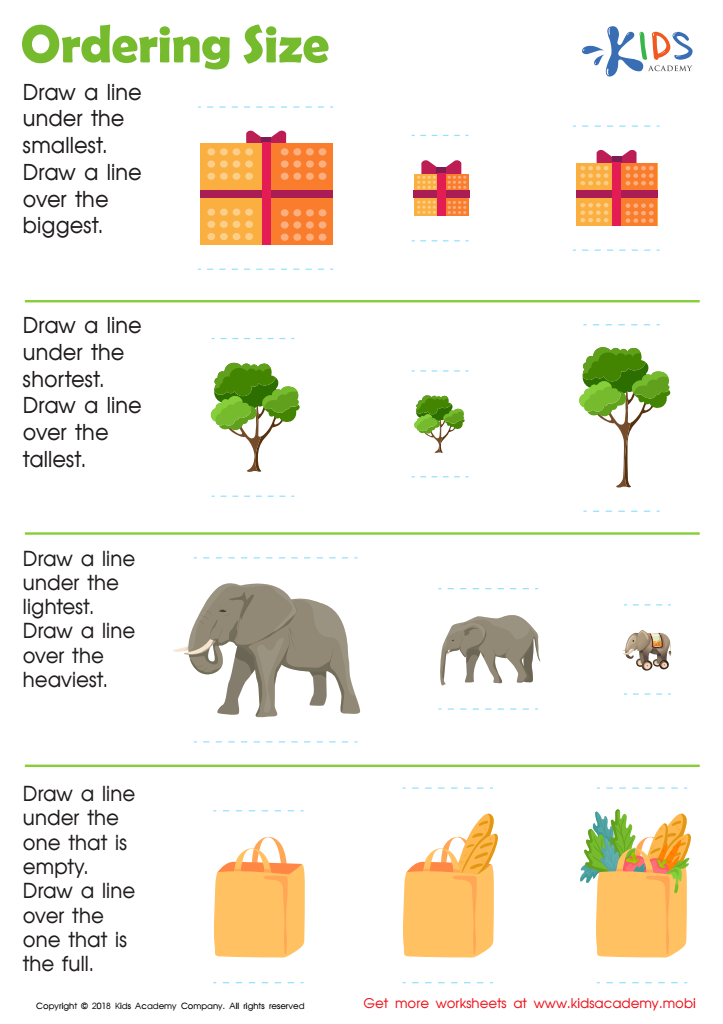

Ordering Size Worksheet
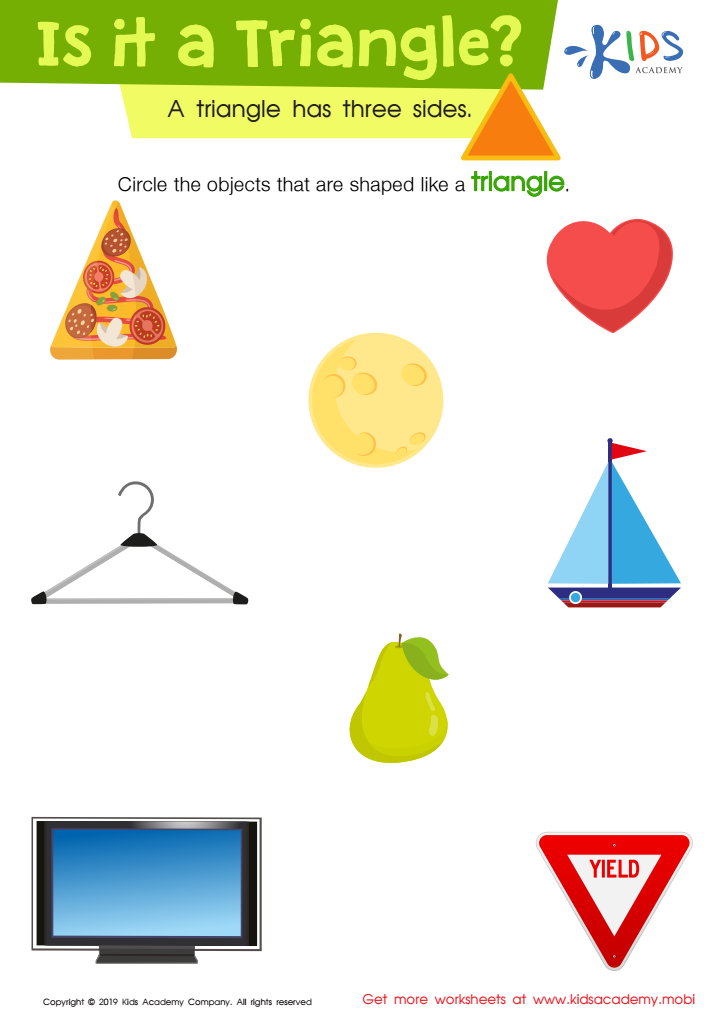

Is It a Triangle? Worksheet
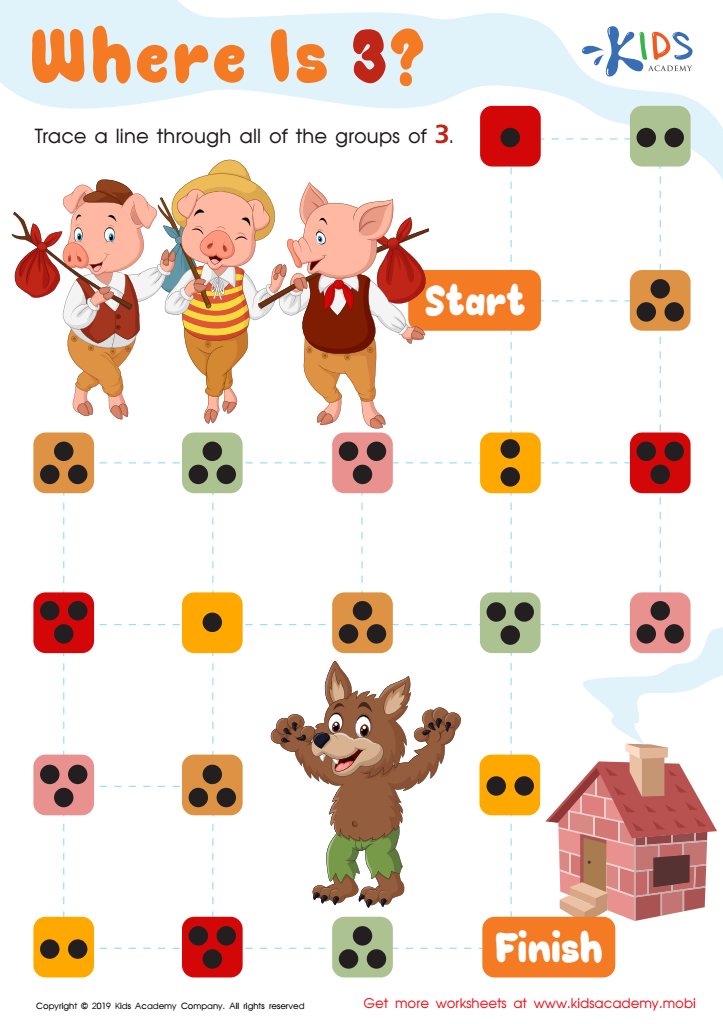

Where Is 3? Worksheet
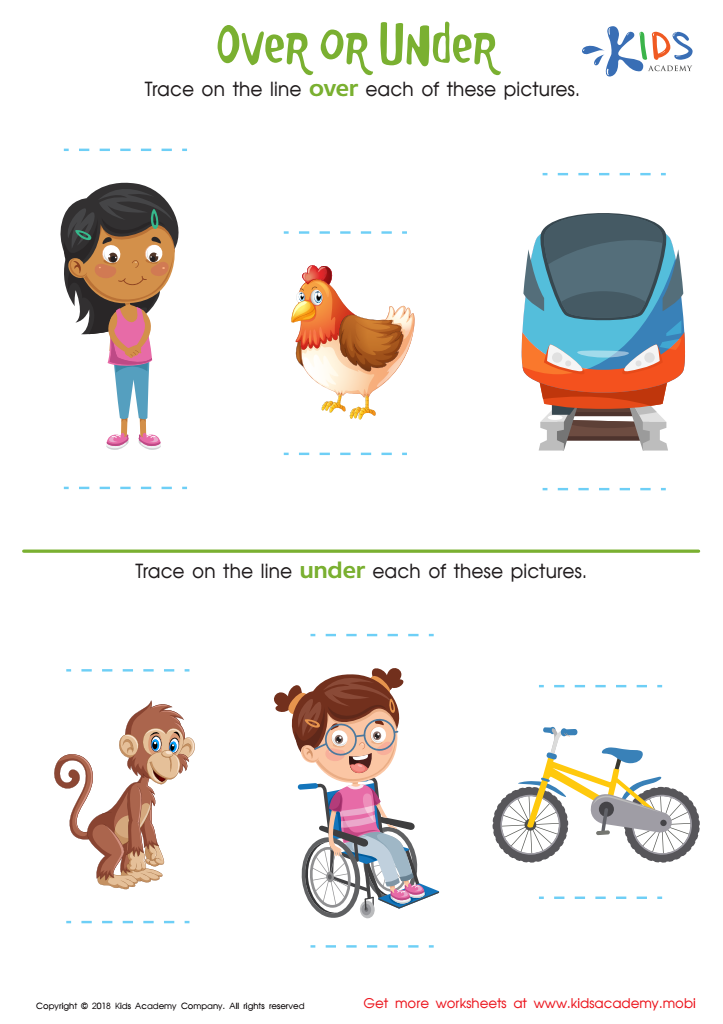

Over or Under Worksheet
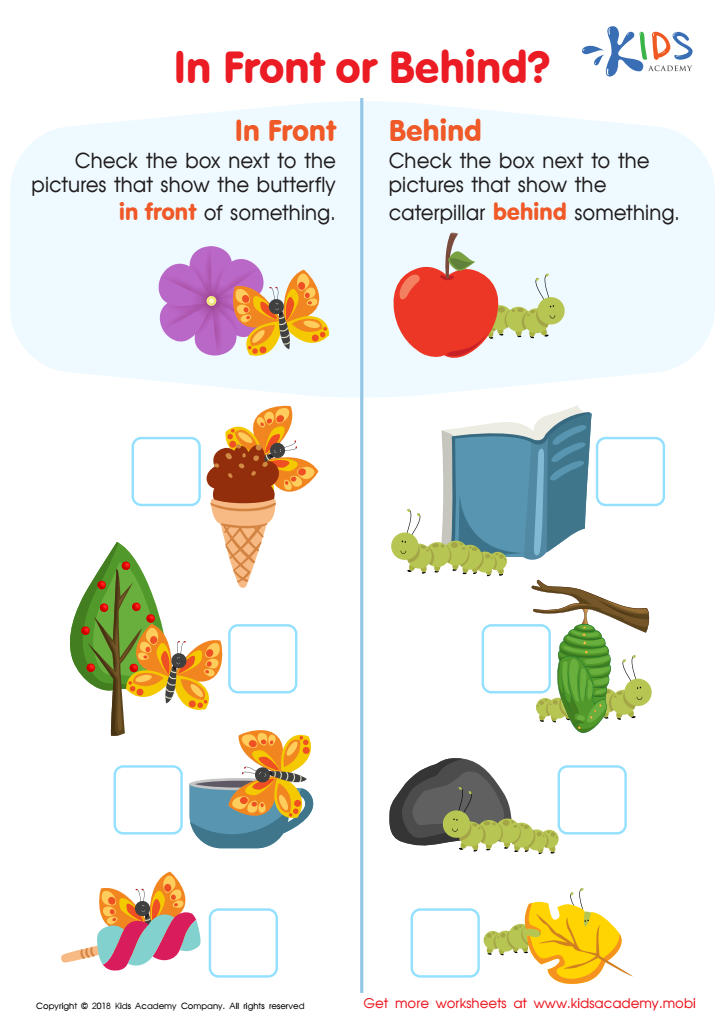

In Front or Behind Worksheet
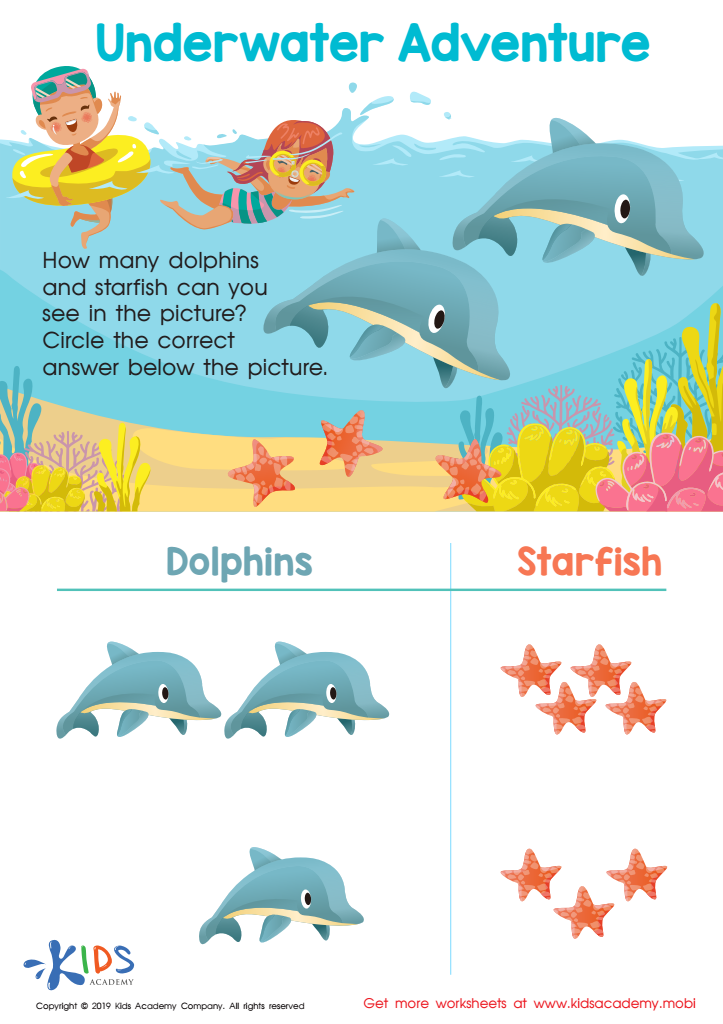

Underwater Adventure Worksheet
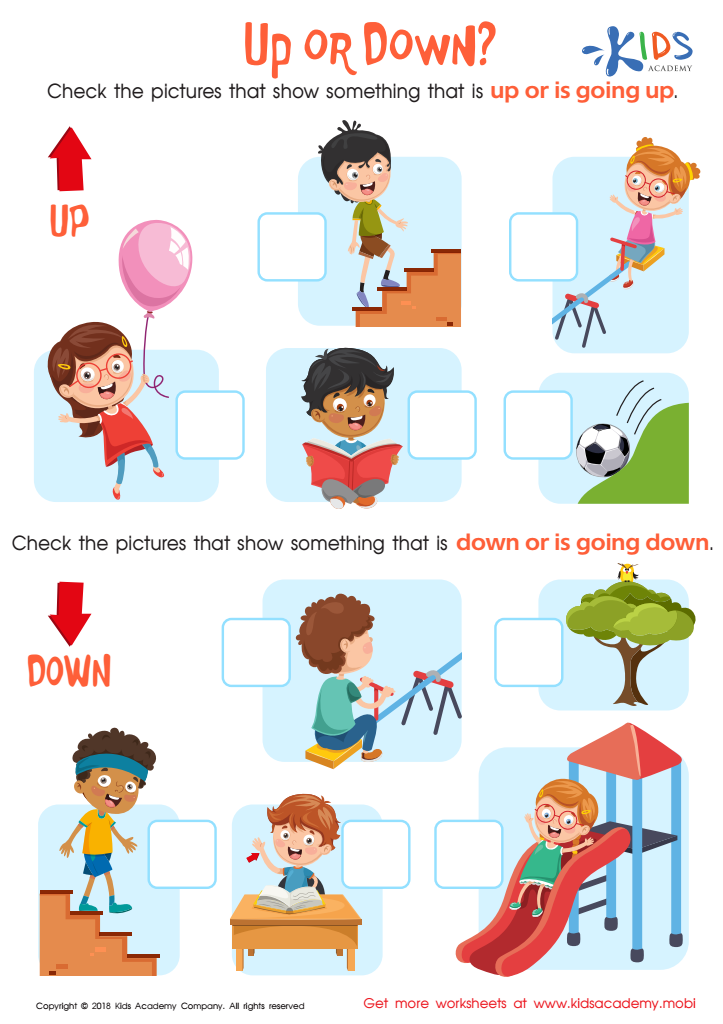

Up or Down Worksheet
Spatial awareness is a fundamental skill that significantly impacts a child's overall development, particularly in early math learning. For preschool-aged children, understanding spatial relationships lays the groundwork for more complex mathematical concepts, such as geometry, measurement, and even basic arithmetic. When parents and teachers nurture spatial awareness, they are equipping children with the ability to visualize and manipulate shapes and spaces in their environment.
Caring about spatial awareness in preschool math can lead to enhanced problem-solving abilities and critical thinking skills. Children who engage in activities that promote spatial skills—like building with blocks, playing with puzzles, or navigating physical spaces—tend to excel in later math studies. These skills also benefit literacy and scientific learning, as they help children make connections between various concepts.
Moreover, developing spatial awareness fosters creativity and innovation since children learn to visualize possibilities and think outside the box. It also aids in enhancing fine motor skills through hands-on activities. By emphasizing spatial awareness, parents and teachers can help children build a strong foundation for lifelong learning, increasing their confidence and interest in math and related subjects as they grow. Investing in this aspect of early education is, thus, crucial for holistic cognitive development.

 Assign to My Students
Assign to My Students












